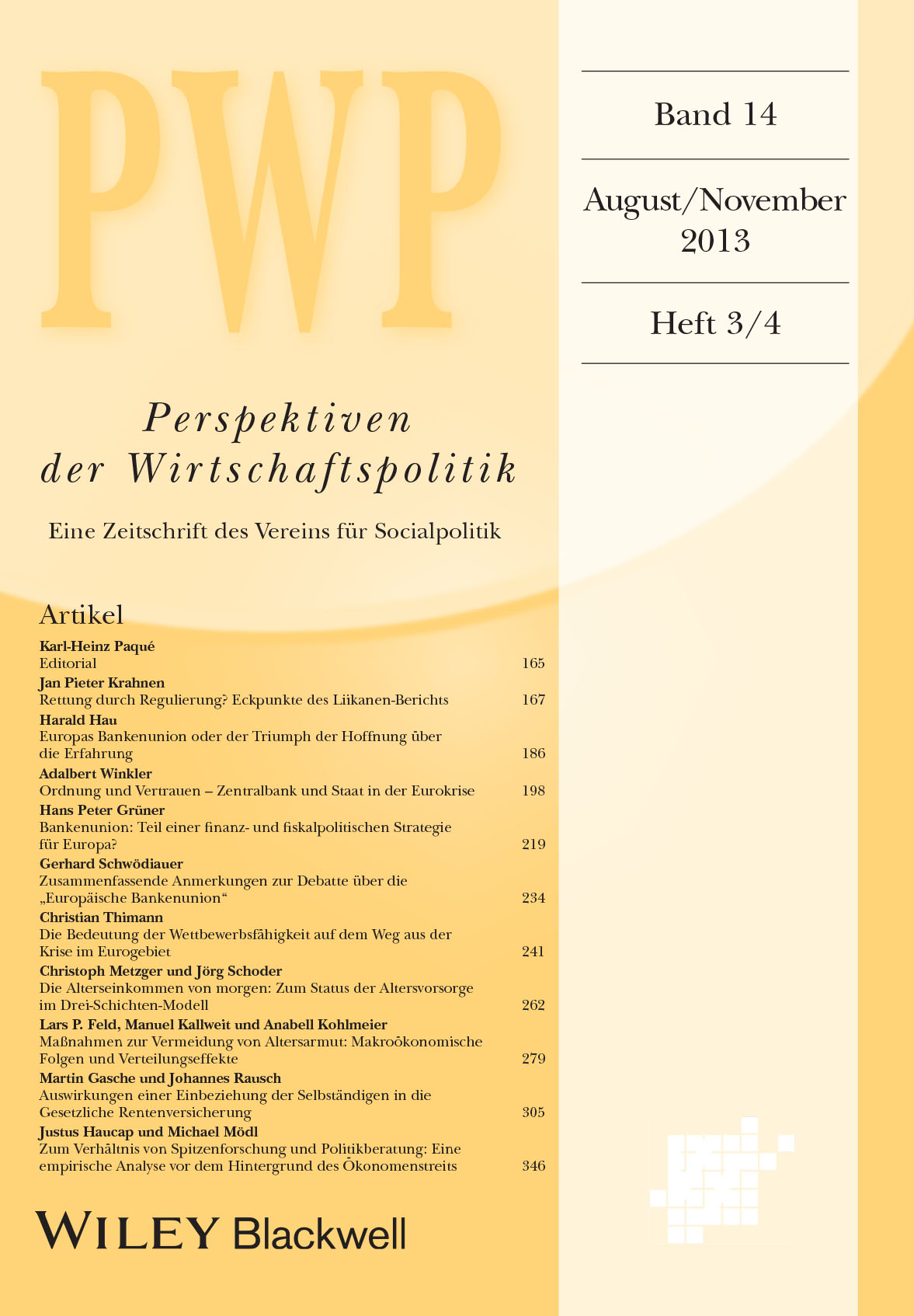Zum Verhältnis von Spitzenforschung und Politikberatung: Eine empirische Analyse vor dem Hintergrund des Ökonomenstreits†
Diese Arbeit basiert in nicht kleinen Teilen auf der Diplomarbeit von Michael Mödl, welche er 2010 an der Universität Erlangen-Nürnberg unter Betreuung von Justus Haucap verfasst hat (Mödl 2010). Den jetzigen Aufsatz haben die Autoren auf dieser Grundlage gemeinsam verfasst. Für sehr hilfreiche Kommentare danken wir Lutz Arnold, Susanne Cassel, Björn Frank, Wolfram Richter und Tobias Thomas, den anonymen Gutachtern dieser Zeitschrift sowie den Teilnehmern der Jahrestagung des Vereins für Socialpolitik 2010 in Kiel, des alternativen Wirtschaftsgipfels des „Arbeitskreis Real World Economics“, der 2012 in Göttingen parallel zur dortigen Jahrestagung des Vereins für Socialpolitik stattgefunden hat, sowie den Teilnehmern des 40. Hohenheimer Oberseminars 2013 in Kassel.
Abstract
This article provides empirical information on the relationship between German economists' activities in the fields of economic policy advice on the one hand and top research on the other hand. We have analyzed (a) whether top journal publications by German economists deal with particular economic issues of the German economy or society and (b) which economists are active in economic policy activities at all. To analyze the latter question we have analyzed (i) the lists of expert studies commissioned by the German Ministries of Finance, of Economic Affairs and of Labor and Social Policy, (ii) the list of experts invited to hearings of corresponding committees of the Bundestag (the Federal German Parliament) and (iii) the articles published in Wirtschaftsdienst, a German economic policy magazine. As our analysis shows, economists active in these types of policy advice are typically not top researchers as measured by their publication records. At the same time our content analysis (a) of articles published by German economists in top journals shows that the vast majority of these articles do not deal with issues of particular relevance for Germany. The analysis suggests that, in Germany, research and policy advice activities can be characterized by a strong division of labor among economists.




